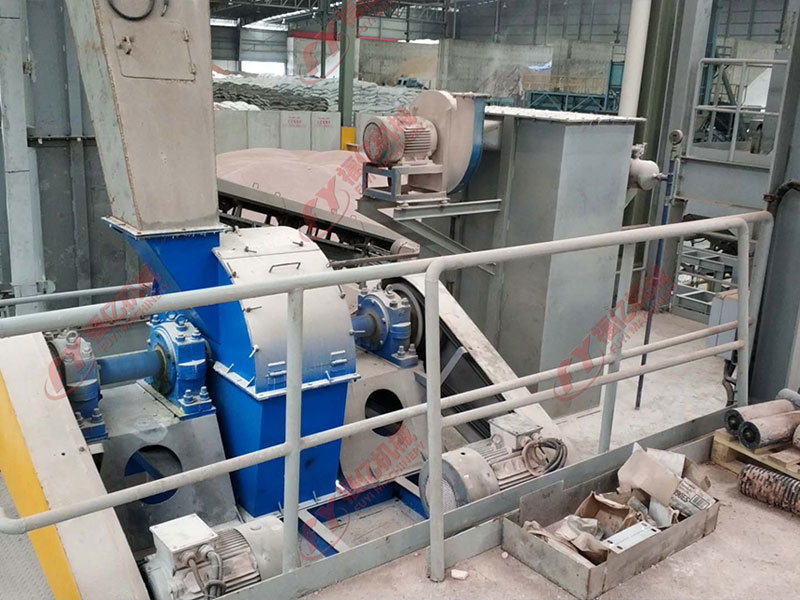
News & Events
The Future of Farming: Compaction Granulation Technology
Release time: 2023-06-21
As the world population continues to grow, the demand for food is increasing exponentially. To meet this demand, farmers are under immense pressure to maximize crop yields while minimizing costs. One of the most promising solutions to this challenge is compaction granulation technology.
Compaction granulation is a process that involves compressing and shaping dry powders into granules using a specialized machine called a compactor. This technique offers many benefits to farmers, including:
- Improved fertilizer efficiency: Compaction granulation can increase the solubility and availability of nutrients, allowing plants to absorb them more efficiently. This results in better plant growth and higher yields.
- Enhanced soil structure: Compaction granules can improve soil structure by reducing compaction and increasing water infiltration. This, in turn, can improve root growth and nutrient uptake.
- Reduced dust and waste: Compaction granulation can eliminate dust and reduce waste by creating uniform, free-flowing granules that are easy to handle and apply.
In addition to these benefits, compaction granulation technology is also more cost-effective than traditional fertilizer application methods. By reducing the amount of fertilizer required and minimizing waste, farmers can save money in the long run.
Furthermore, compaction granulation technology is environmentally friendly. By improving fertilizer efficiency and reducing waste, this technique can help reduce fertilizer runoff and prevent water pollution.
Overall, compaction granulation technology has the potential to revolutionize modern farming practices. By improving fertilizer efficiency, enhancing soil structure, and reducing waste, farmers can achieve higher yields while minimizing costs and environmental impact.
Compaction granulation is a process that involves compressing and shaping dry powders into granules using a specialized machine called a compactor. This technique offers many benefits to farmers, including:
- Improved fertilizer efficiency: Compaction granulation can increase the solubility and availability of nutrients, allowing plants to absorb them more efficiently. This results in better plant growth and higher yields.
- Enhanced soil structure: Compaction granules can improve soil structure by reducing compaction and increasing water infiltration. This, in turn, can improve root growth and nutrient uptake.
- Reduced dust and waste: Compaction granulation can eliminate dust and reduce waste by creating uniform, free-flowing granules that are easy to handle and apply.
In addition to these benefits, compaction granulation technology is also more cost-effective than traditional fertilizer application methods. By reducing the amount of fertilizer required and minimizing waste, farmers can save money in the long run.
Furthermore, compaction granulation technology is environmentally friendly. By improving fertilizer efficiency and reducing waste, this technique can help reduce fertilizer runoff and prevent water pollution.
Overall, compaction granulation technology has the potential to revolutionize modern farming practices. By improving fertilizer efficiency, enhancing soil structure, and reducing waste, farmers can achieve higher yields while minimizing costs and environmental impact.
Keywords: compaction granulation technology
 fy@fuyigz.com
fy@fuyigz.com
 0086-519-80181222
0086-519-80181222





















 fy@fuyigz.com
fy@fuyigz.com
 +61 426861120
+61 426861120
 Message
Message
